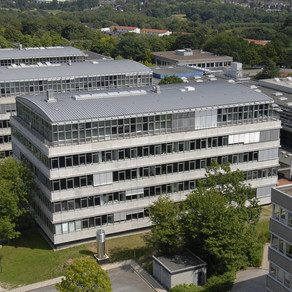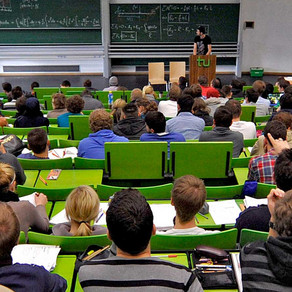Planning in Germany and Pakistan: Responding Challenges of Climate Change through Intercultural Dialogue
The project “Planning in Germany and Pakistan: Responding Challenges of Climate Change through Intercultural Dialogue” aims to start and stimulate dialogue between the students and young academics from Germany and the higher education institutes in Pakistan. It targets modernization of teaching, promotion of skill development of young academics, identification of teaching and research areas of shared scientific interest, and establishing networks and cooperation regionally and internationally. This project will be implemented by the Department of Spatial Planning (TU Dortmund University) in partnership with 3 Pakistani Universities: University of Engineering and Technology (UET), Lahore, Department of City and Regional Planning; Lahore College for Women University (LCWU), Department of City and Regional Planning; National University of Sciences and Technology (NUST), Islamabad, with two departments: Architecture Department and Development Studies Department and funded by DAAD.
This project acknowledges two special topics to enhance dialogue, exchange, and identify teaching and research prerequisites, which will be part of developing and synergetic teaching and research activities. Climate change, the breakthrough topic for the first year, is relevant to European and Islamic world contexts. Both climate regions will need to understand its future impacts and adjust their spatial planning to address future environmental changes. Climate change challenges can be addressed from an ecological basis that is interpreted through spatial planning, thereby opening the door for dialogue about the commonalities and differences in ethnic, religious, social, economic, and ecological parameters, and the philosophy, procedures, and methods of spatial planning between the two partners. Architectural, social, urban planning, and environmental approaches to climate change challenges have also been studied in Iran, a country in the Islamic world that is drastically affected by the impacts of climate change and is in urgent need of sustainable solutions for climate-sensitive planning. Our hands-on experience in dealing with climate-related issues in this region suggests that international and interdisciplinary collaboration is needed to achieve evidence-based impact in cities catalysed by research institutions in the Middle East and the Islamic world. Climate change is a global phenomenon and cannot be addressed solely within the geographic boundaries of one country. Our goal in this project is to leverage the collaborative project with Pakistan from our well-established research on this topic with countries from the same regional context and expand the research network on climate issues.
Cross-cultural perception of urban and rural landscapes and cultural heritage is the breakthrough topic for the second year (in case of continuation of the project). An understanding of urban understanding linking them with the local cultural heritage will help appreciate the historical context and its implication in planning and management. Dialogue does not need to be limited to these topics. Still, it can also encompass methodological approaches, which can be used, for example, to understand public awareness, responses, and adaptation to climate change challenges, give insights into community preferences for climate change-related projects or integration of cultural heritage, all three of which can be areas for modernization of the curriculum within the partnership network.
Project Leader
Prof. Dr.-Ing. Dietwald Gruehn
E-Mail dietwald.gruehn(at)tu-dortmund.de
Project Coordinator
Dr.-Ing. Mohammad Bashirizadeh
E-Mail mohammad.bashirizadeh(at)tu-dortmund.de
Contact
Dr.-Ing. Mohammad Bashirizadeh
E-Mail mohammad.bashirizadeh(at)tu-dortmund.de
Sponsor
German Academic Exchange Service (DAAD)
DAAD Program
Higher Education Dialogue with the Muslim World
Partner Universities
University of Engineering and Technology (UET), Lahore,
Department of City and Regional Planning; Lahore College for Women University (LCWU),
Department of City and Regional Planning; National University of Sciences and Technology (NUST),
Islamabad, Departments of Architecture and Development Studies






